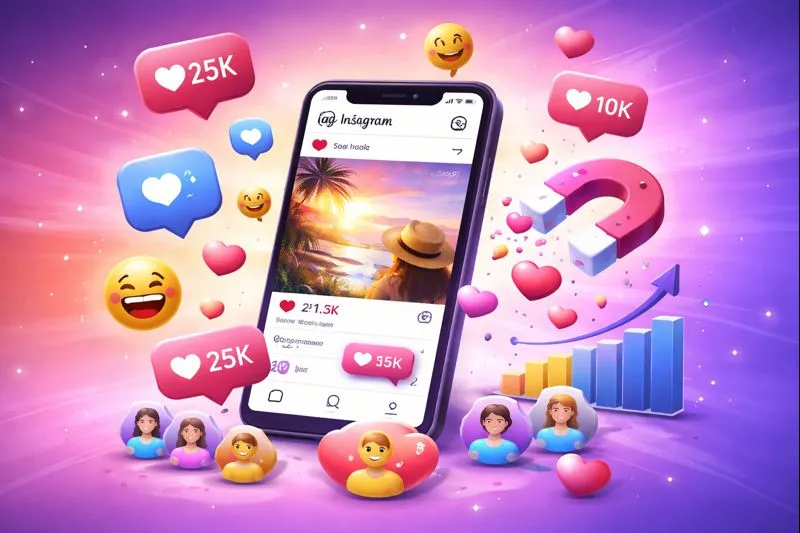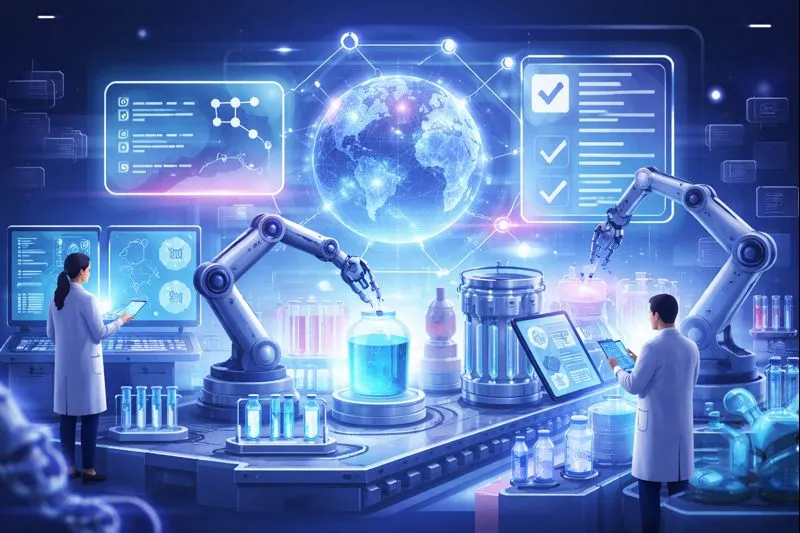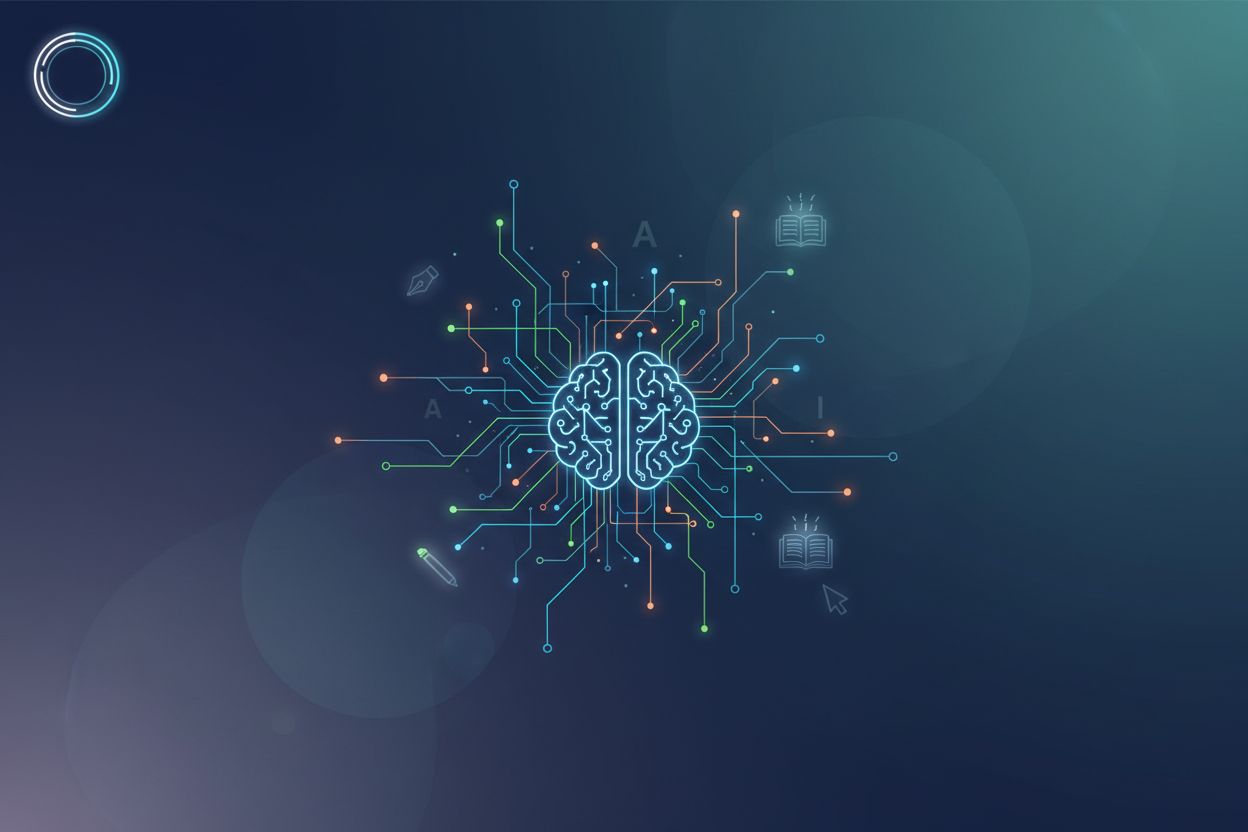Artificial Intelligence in Educational Contexts
TL;DR
The Rise of AI in Education: An Overview
Okay, let's dive into the crazy world of ai in education, right? It's kinda like that sci-fi movie we all secretly wished was real, but—surprise!—it's actually happening, and faster than we can say "algorithm."
You know, it's wild to think that just a few years ago, ai in schools was just a pipe dream, but now? According to Engageli, a whopping 60% of teachers are already using ai tools in their daily grind. Imagine—less grading, more actually teaching!
Teachers are reporting saving up to 44% of their time on tasks like lesson planning and research, says Engageli.
That's, like, a whole extra day a week to actually connect with students or, you know, just breathe. And it's not just the teachers—check this out:
- Students are all over ai, using stuff like chatgpt for homework (89% admit it, according to Engageli).
- ai is making learning way more personal, boosting student outcomes by as much as 30% (Engageli says so). Forget those boring, one-size-fits-all lessons!
- Engagement is skyrocketing, too. ai-powered active learning can get kids 10x more hooked than just sitting there listening to a lecture (Engageli again).
It's easy to get lost in the hype, so let's get real for a sec. Think about it—ai could help customize learning, provide instant feedback, or even help with those never-ending administrative tasks. Now that we've established the widespread adoption and potential of AI in education, let's delve into the concrete ways it's transforming the learning experience.
So, what happens now? Well, the ai train isn't slowing down. With the global ai in education market projected to explode to $112.30 billion by 2034, it's clear that ai is set to become less of a novelty and more of a basic necessity.
Transforming the Learning Experience: AI in Action
Alright, let's get into how ai is actually changing things in education, not just the theory, right? It's like, we keep hearing about ai this, ai that, but what does it look like when it's not just buzzwords? Turns out, it's pretty cool, if you ask me.
Forget the days of one-size-fits-all lectures, ai is helping to create personalized learning paths that are seriously effective. Think of it like this:
ai algorithms analyze tons of student data – performance, learning style, engagement metrics, and even how long they focus on specific concepts – to figure out what each student needs. This data helps tailor the learning journey, ensuring students get the right support at the right time. It's like having a super-attentive tutor that never gets tired.
Adaptive learning platforms use all this data to adjust content in real-time. So, if a student is struggling with fractions, the system automatically provides extra practice and explanations. It's pretty sweet, you know?
There's adaptive learning enabled by ai that has been shown to improve student test results by 62%, says Artificial intelligence in education: A systematic literature review.
Imagine having a tutor available whenever you need it—midnight before a big test? 3 am trying to debug that code? ai-powered tutoring systems are making this a reality.
These systems offer on-demand assistance and feedback. Stuck on a calculus problem? An ai tutor can walk you through the steps, explain the concept in a different way, or provide additional practice problems.
They're not just for math, either. There are ai tutors for writing, programming, even learning a new language. As Artificial Intelligence in Education Regional Educational Laboratory Northwest points out, these systems can provide real-time, automated instructions and explanations, and can be adaptive to guide individual student learning and provide immediate feedback and support.
Let's be real, grading papers is the bane of every teacher's existence. ai is stepping in to automate assessment and feedback, which is a game-changer.
ai-powered tools can grade assignments and provide feedback way faster than any human, says Engageli. We’re talking about saving teachers up to 44% of their time, according to Engageli.
This automation isn't just about saving time, though. It also helps ensure consistency and objectivity in grading. No more "my favorite student gets an A" situations.
So, ai is here to transform education, and it’s already happening. But how can we make sure it's used ethically and effectively? This transformation extends beyond direct student interaction, impacting the very infrastructure of educational institutions.
Beyond the Classroom: AI for Administrative and Institutional Efficiency
Did you ever stop to think how much schools spend on not teaching? Turns out, it's a lot. But ai might be the key to unlocking some serious savings.
ai isn't just changing what students learn; it's shaking up how schools are run—and honestly, it's about time. Think about it:
- Scheduling nightmares? ai got you. It can handle course scheduling, allocate resources, and even manage enrollment. It’s like having a super-organized assistant that never needs a coffee break.
- Freeing up staff time is HUGE. I mean, who wants to spend all day on paperwork? ai can automate tasks, letting staff focus on what they do best: actually working with students.
It's not just about saving time, though. ai can also help schools make smarter choices.
Spotting trends is kind of ai's thing. It can look at all that institutional data—you know, student performance, attendance, all that jazz—and find patterns we'd never see. For example, ai might identify that a significant number of students are struggling with a particular concept in a specific course, or notice early signs of disengagement based on attendance patterns.
Retention and graduation rates are big deals. And ai can help improve them! By analyzing student data, schools can figure out what's working and what's not and then tweak things accordingly. For instance, if ai flags students at risk of dropping out, the institution can proactively offer targeted support services like academic advising or financial aid assistance.
As Artificial Intelligence in Education Regional Educational Laboratory Northwest points out, ai can automate assigning, grading, and scoring assignments; schedule classes; and manage attendance. Now, imagine what educators could do with all that extra time.
It's not just about the students, either. ai can analyze classroom observation videos, which is really helpful for training teachers. It's especially useful for those remote and hybrid setups, where it's harder to keep an eye on everything.
So, yeah, ai is doing some pretty cool stuff behind the scenes, too. But with all this power comes responsibility, and we need to carefully consider the ethical implications. What's next? Well, let's talk about how ai can help create amazing content for education.
Ethical Considerations and Challenges of AI in Education
Okay, so, ai in education? It's not all sunshine and rainbows, folks. While it's solving some problems, like, whoa, are there some ethical potholes we gotta dodge.
ai algorithms, while super smart, can accidentally inherit biases from the data they're trained on. This can lead to some seriously unfair outcomes.
Like, imagine an ai tool that's used to assess student essays and it's, like, only been trained on essays from a specific demographic. It might unintentionally penalize students who write differently—perhaps using different vocabulary, sentence structures, or cultural references—perpetuating existing inequalities.
- To make sure these systems are fair, it's crucial to have diverse datasets and regularly audit algorithms for bias. It's like, gotta keep ai in check, you know? And, making sure everyone has access to these ai tools is important. It's not cool if only certain schools or students get the shiny new ai stuff.
With ai hoovering up tons of student data – grades, attendance, even learning styles – data privacy becomes a huge concern. What happens with all that data? Is it secure? Who has access?
- Schools need to have crystal-clear data protection policies and follow regulations, like, seriously follow them. Transparency is key, too. Students and parents need to know exactly what data is being collected and how it's being used. It's about trust, you know?
Education isn't just about spitting out facts; it's also about building relationships, fostering creativity, and, well, being human. Can ai really replace that?
- It’s important to avoid over-relying on ai and losing the human element in teaching. Teachers need training to use ai as a tool – not letting it take over the whole show. It’s like, ai should be the sidekick, not the superhero, if that makes sense. For example, teachers can use AI to generate practice questions but then lead a class discussion to analyze the answers, or use AI to summarize research papers but then guide students in critically evaluating the sources.
So, yeah, ai in education has some serious ethical hurdles to clear. But, if we approach it thoughtfully, we can harness the power of ai while still protecting students and preserving the heart of education. What's next, though? Let's talk about the future of AI in education.
The Future of AI in Education: Trends and Predictions
Okay, so what's the future look like? Honestly, it's kinda wild to think where ai in education is headed. Are we talking robot teachers in every classroom? Maybe not quite yet, but things are definitely changing fast.
Generative ai is gonna be huge. Think about it, ai that can create content? It could whip up personalized learning materials for every kid, no sweat. Imagine textbooks that adapt to how you learn. However, we need to be mindful of potential issues like accuracy, originality, and ensuring the pedagogical soundness of AI-generated content.
vr and ar are about to get real immersive. Forget textbooks—what if you could, like, walk through the Amazon rainforest in biology class? ai can make that happen. It's not just games, it's learning by doing.
ai could really change the game for little kids, especially kids with special needs. Early intervention is everything, and ai can help spot problems and give kids the support they need sooner.
So, ai is doing all this cool stuff, but what's left for teachers? Turns out, a lot. They're not gonna be replaced, that's for sure.
Teachers are gonna be more like mentors, guiding students through all this new information. It's less about lecturing and more about helping kids think for themselves. This might look like facilitating debates on AI-generated content, guiding students through complex project-based learning, or helping them develop critical thinking skills to discern reliable information.
Being a teacher in the age of ai means learning new skills. It's not just about knowing your subject, it's about knowing how to use these tools effectively.
Teachers will need to keep learning, too. As Artificial Intelligence in Education Regional Educational Laboratory Northwest points out, educators need sufficient training to understand ai fundamentals and use ai tools competently.
We need to make sure ai is used ethically in schools, right? It's not just about the tech, it's about what's fair.
We need guidelines for how ai is used in education. For instance, guidelines could specify that student data collected by AI tools must be anonymized and used solely for educational improvement, or that AI systems used for assessment must undergo regular bias audits with clear protocols for addressing identified issues.
According to Engageli, a whopping 92% of business leaders anticipate boosting their ai spending over the next three years. We need to invest in research and development to make sure ai in education is top notch. Critical areas for R&D include improving AI's understanding of nuanced learning processes, developing more robust bias detection and mitigation techniques, and enhancing AI's capacity to support students' socio-emotional development.
Let's get everyone involved – teachers, researchers, policymakers – to share what they learn. It's a team effort, you know?
If we do this right, ai could make education way better for everyone. It's not a magic bullet, but it's a tool that, if used wisely, could really change the world.




